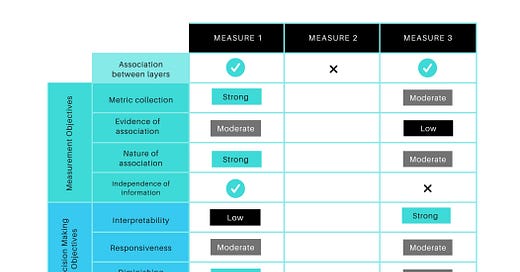A Practical Framework for Selecting and Prioritising Athlete Performance Tests
Validity, Decision-Making, and Feasibility
Introduction
In Part 1 of this series, I discussed how to build a performance model that links physical qualities and associated measures to a key aspect of sports performance. Here, in Part 2, I present a complementary framework to determine the extent to which one layer is connected to another. This framework will also help establish the suitability of a test/measure to a given context.
The assessment of physical qualities such as strength, power, speed, and endurance is fundamental to athlete preparation. However, with the vast array of available tests, selecting the most appropriate measures is a challenge for sports practitioners. Not all tests provide meaningful insights that can translate to training adaptations and improved competition outcomes. Furthermore, the feasibility of implementing certain tests may be constrained by logistical and financial limitations. Given these challenges, a structured framework is essential for evaluating test measurements to ensure that they are valid, actionable, and practical within an applied sports setting.
A well-designed testing framework should do more than merely collect data—it must provide a decision-support process that enables practitioners to make informed choices about their athletes' training. The framework presented here evaluates test measurements through three primary lenses:
Measurement validity – ensuring that a test accurately captures the intended quality.
Decision-making utility – assessing whether a test provides actionable data.
Organizational feasibility – determining whether a test is practical given financial, time, and logistical constraints.
By systematically addressing these areas, practitioners can confidently integrate testing into their performance programs without wasting resources on ineffective or impractical assessments.
Keep reading with a 7-day free trial
Subscribe to Dr Lachlan James - ForceLab to keep reading this post and get 7 days of free access to the full post archives.



